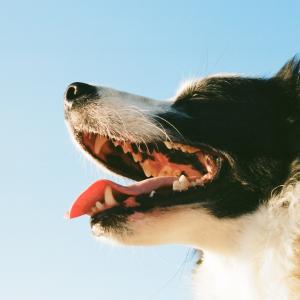
By Vet Nurse Eve Dennison

Did you know, one in eight dogs are diagnosed with dental disease every year?
Also, 70 per cent of cats develop some degree of dental disease by two years of age according to the Royal Veterinary College.
Adult dogs have 42 teeth and adult cats have 30 teeth. Unfortunately dental disease often goes unnoticed in pets. Common signs include bad breath, yellow or brown teeth, inflamed or bleeding gums, excessive drooling, facial swelling and a reduction of appetite.
Rabbits and guinea pigs can also be affected by dental disease because their teeth are constantly growing. To maintain their teeth their diet should consist of 80-90 per cent fresh hay and a complete diet, avoiding muesli-based diets.
Despite this, they can still develop overgrown teeth and spurs (sharp points) which require burring under general anaesthetic. Signs of dental disease in small furries include difficulty or lack of eating, weight loss, jaw swellings, salivation and watery or swollen eyes.
Dental disease is often a very painful condition leading to secondary issues if not addressed. Regular checks are recommended ideally every 6-12 months to ensure dental disease can be identified and treated early. First steps often include implementing dental care at home however, sometimes dental treatment under a general anaesthetic may be required.
At Paragon, as at many vet practices, nurse dental clinics are available to attend throughout the year. These provide opportunities for dental disease to be identified and allow us to discuss care and advice which is specific to your pet.
As a team, we also carry out dentals routinely. Dentals require a general anaesthetic to scale and polish the teeth.
If any extractions are required, X-rays are taken, and further pain relief is given to target the specific areas. Under general anaesthetic all the teeth are given a deep clean to allow them to be fully accessed.
Afterwards we also provide free post operative checks at three days, one month and three months post dental to ensure the teeth are maintained.
During these checks we stain your pet’s teeth to assess for any new plaque and tartar build up. This allows us to advise you on specific areas you need to focus on with brushing. You also will receive a free dental home care pack.
Daily brushing can be very effective in preventing dental disease. You must use pet toothpaste, as human toothpaste is toxic to animals. Your vet practice will be able to advise you on how to go about it.
*Throughout August Paragon is offering 10 per cent off all dental treatments.